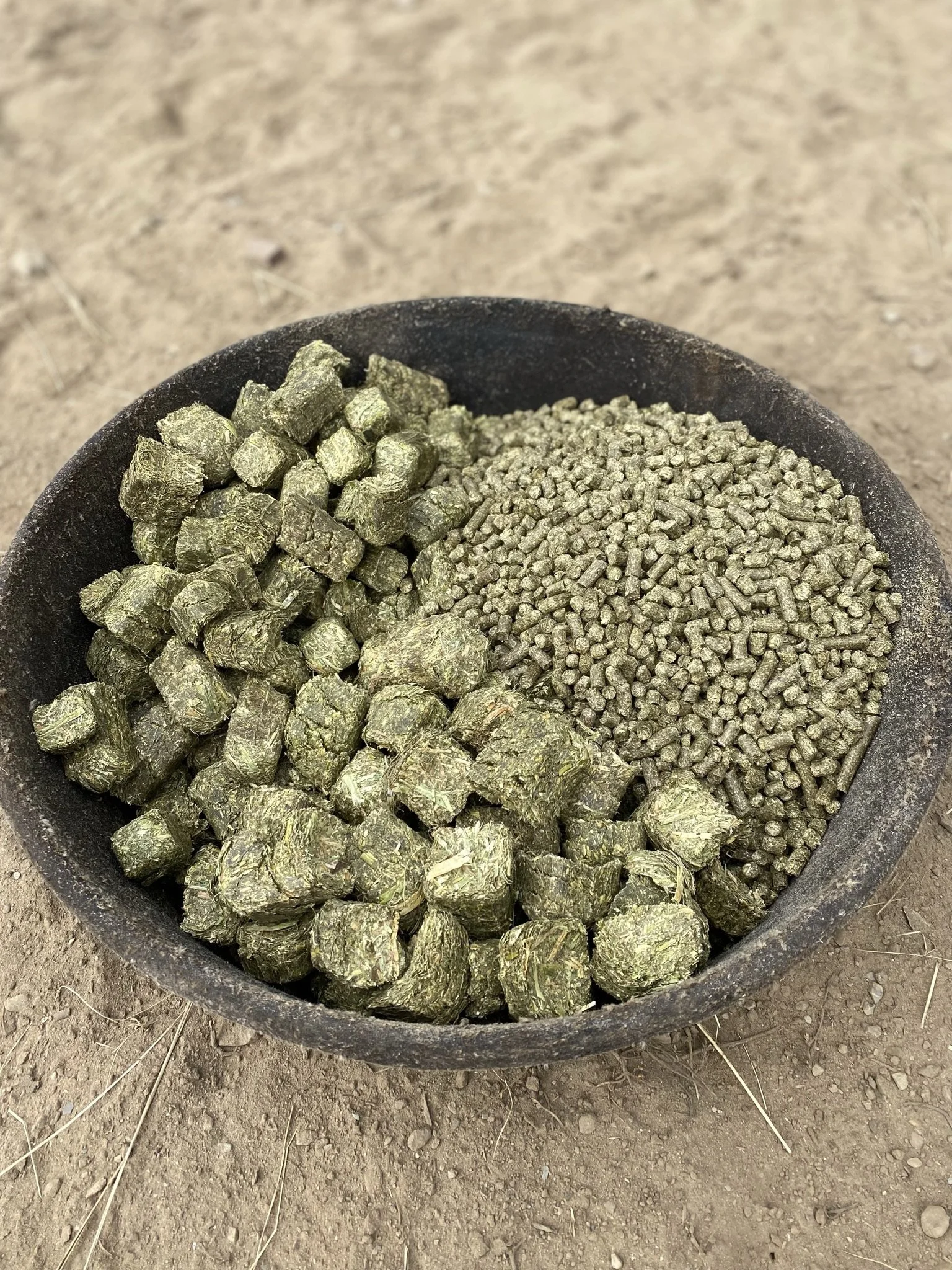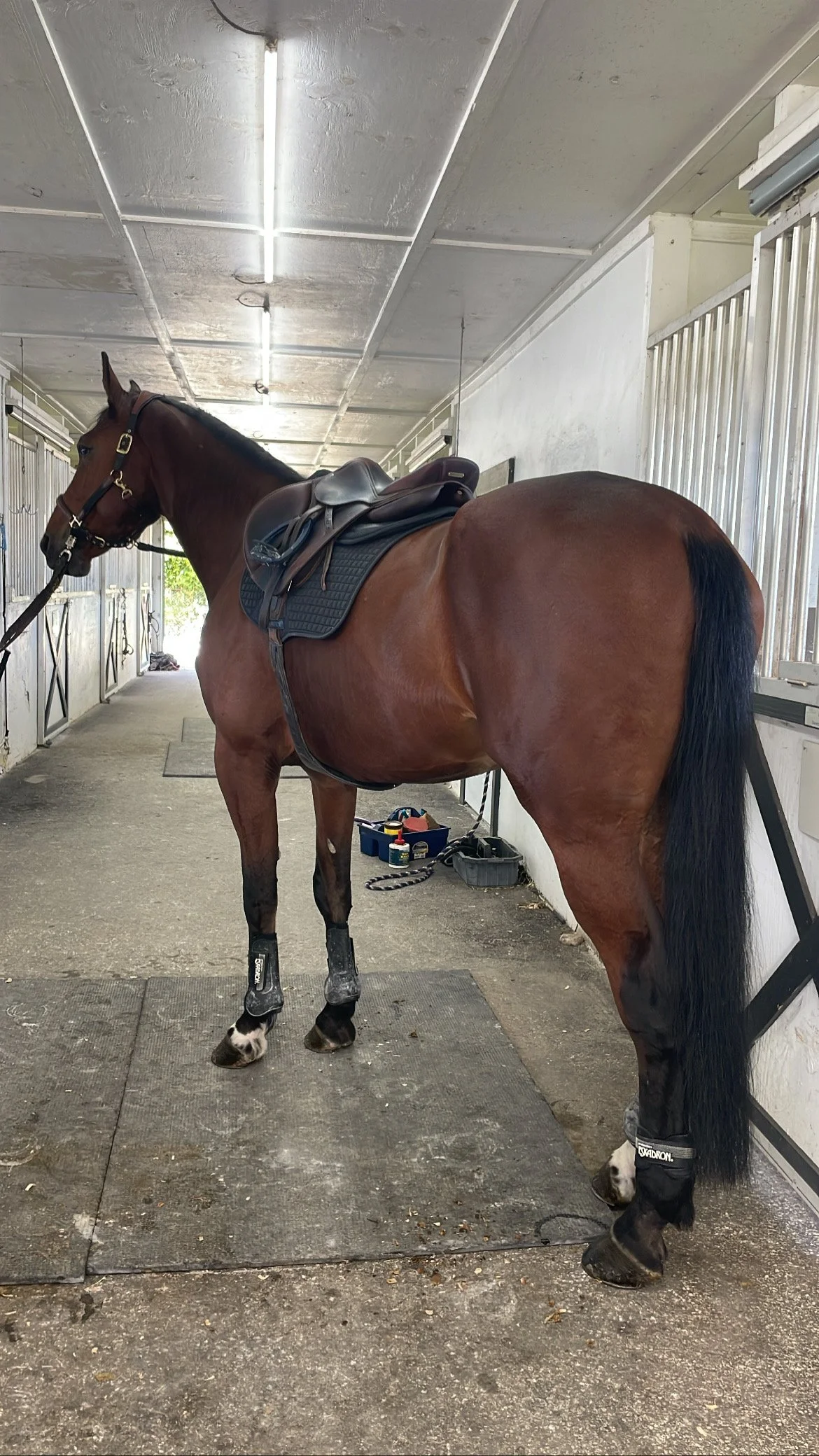Supplement hack, you’ll want to read this.
If you own horses, you’ve likely questioned the need for supplements at one point or another. Or you’ve been overwhelmed by the thousands of options perusing the SmartPak website. I’ve been there before, and to this day am researching different opinions from veterinarians and nutrition experts alike. Disclaimer : I’m no expert. Just another equestrian trying to do right by my horse without draining the bank more than I already am! There’s a fine line between spending additional money to help our horses and spending money on products that show zero return. Yet we do it anyway, because it makes us feel like better horse owners. I’m guilty as charged!
Before I continue, this post isn’t about supplements that help things such as the anatomical part of the horse’s body. An example being a joint, tendon, and ligament supporting supplement. I personally use the 100X Equine product Osteo-Max, as well as their Gut-X and an additional colic preventative from SmartPak. I have also gone as far as Adequan I.M. to add even more support and relief. Being 18.1hh, the development and maturity in his body and in training will take longer than most horses. I’m doing everything I can to make sure he develops sound and strong, so supplementing with high-quality joint support and relief is therefore an integral part of his daily programming.
However, there are loads of supplements for things such as healthy coats, mane and tail growth, weight gain.. more exterior results that one might notice with the naked eye. I’m here to present a more unpopular opinion, but one that hasn’t let me down yet.
Let’s chat about alfalfa, a dense, rich, green forage that can get a bad rep in the industry. The most common thing I’ve heard is that it makes horses hot, so people shy away from it. Or it’s too rich and they cannot consume it regularly. I too had my qualms with it when I was younger, until a mentor of mine showed me how he fed all of his horses alfalfa pellets every day. Not just a scoop, but a bin large enough that most horses wouldn’t eat it all in one serving. And in case you think this is a fluke, my mentor after this also did the same exact thing. Two facilities, with top-notch reining and dressage horses, supplementing with alfalfa. And their horses were slick, shiny, and with muscles like bodybuilders.
Since horses are grazers by nature, I liked the idea of getting more forage in their system as opposed to pellets or powdered supplements. I began putting all of my horses, both personal and client owned, on alfalfa cubes. During the summertime in Virginia, it gets extremely hot and humid. Horses in demanding work would drop weight quickly if I didn’t load them up with calories. The alfalfa worked wonders, keeping weight on even my hardest of keepers. Their coats were always shiny, their hooves healthy, and even their GI system benefited from the added forage.
The reason I chose cubes over pellets was for the additional stem that only the cubes offer, which in turn mimicked hay better. To eliminate any chance of choking, I’d soak the cubes in water first. If soaking puts you off, pellets serve the same benefits. These are the more common choice for large-scale operations, where soaking isn’t an option for so many horses to feed.
Alfalfa cubes and pellets, my favorite go-to for every horse.
There were no instances in which I felt a horse wasn’t benefiting from the alfalfa. I’ve even put Parlay onto it, as he arrived from Europe pretty thin after all the traveling. If there were a horse that’d get hot from alfalfa, it’d be him. Yet I’ve noticed no behavioral changes. He’s put on weight beautifully and now has an incredibly healthy coat to showcase.
My go-to product is Standlee, a forage based company out of Idaho that consistently delivers high quality feed. Because local grass hay is the foundation of my horse’s diet, paired with a grain that delivers all of the macronutrients, minerals, and vitamins, I can make a bag of cubes/pellets last a decent amount of time. A little can go a long way, so long as the rest of their diet is dialed in. If I feel my horse needs more calories, I’ll increase the alfalfa. If he’s gaining too much weight, I back off. It’s very easy to taper with if needed.
In summary, I’ve had nothing but great success using alfalfa. It’s not as scary as what some make it out to be, and can serve a vital role in our horses’ diet. Maybe we can replace some of those pricey supplements with a natural alternative that keeps our horses thriving from the inside out!
Parlay after arriving from quarantine vs 5 months later, before and after a body clip. Fed alfalfa daily for weight gain + maintenance.



